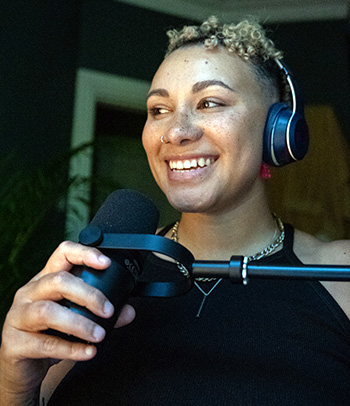One in every 45 adults in the United States is estimated to be living with autism spectrum disorder, and research suggests adult diagnoses are on the rise.
One in every 45 adults in the United States is estimated to be living with autism spectrum disorder, and research suggests adult diagnoses are on the rise.
While most diagnoses take place during childhood, there are adults living with autism who were never diagnosed and may question some of their own feelings and behaviors.
Learning more about autism, its symptoms, and the potential benefits of a diagnosis can help you understand more about whether you or someone you love may have undiagnosed autism.
What Is Autism?
Autism spectrum disorder, often referred to as autism, is a neurological and developmental condition caused by differences in the brain. It affects how a person interacts with others, as well as a person’s communication, learning, and behavior.
What Are the Symptoms of Autism?
The hallmarks of autism are a person’s challenges with social communication skills and restricted and repetitive behaviors. This includes some of the following symptoms:
- Feels awkward in social situations
- Has difficulty understanding what others are thinking or feeling
- Has trouble making friends and understanding social rules
- Responds to conversations in a blunt way
- Takes things literally
- Has difficulty making eye contact
- Has the same routine every day, with small changes being distressing
- Notices small details or patterns that others don’t realize
- Has very intense and specific interests
- Finds it hard to share emotions
- Has difficulty regulating tone of voice (examples may include being too loud or too monotone)
- Completes repetitive movements or speech (examples in children may include rocking back and forth, flapping their hands, or repeating certain words or phrases)
- Experiences sensory differences (examples may include being unusually sensitive to light, sound, or temperature)
Along with these symptoms, people with autism also demonstrate a number of strengths and abilities. Examples include having an excellent memory, learning things in great detail, or excelling in subjects like math, science, music, and art.
Autism is a spectrum, and symptoms vary from person to person, usually appearing before the age of three. Symptoms in adults are similar to those seen in children, but they may not be as noticeable or may be things you’ve hidden or managed for several years. For example, undiagnosed adults tend to have fewer overt repetitive behaviors than autistic children, like how a young child may spin or flap their hands repeatedly. In addition, while an autistic child may have delayed or unusual language, like repeating words or reciting things from television, an autistic adult may have a very strong vocabulary but have trouble understanding how to adapt their speech to different audiences.
What Can I Expect With a Diagnosis?
Here are some reasons why a diagnosis can be beneficial to you or someone you love:
- It provides an explanation for why you feel or behave in certain ways.
- It provides opportunities for you to access supports, services, and protections under the Americans with Disabilities Act (ADA). For example, under the ADA, you are protected against discrimination and can request reasonable accommodations at work and school, such as dimmed lighting or noise-canceling headphones.
- It can motivate you to connect with a therapist who can help you achieve goals that are important to you, such as enhancing social skills, building relationships, or regulating your emotions.
- It can help you feel less misunderstood and more open to sharing with others the reasons it may be hard for you to make eye contact, give hugs, or manage unpredictability.
Without a diagnosis, you might mask or camouflage your symptoms. Maybe you’ve done this for much of your life, to be accepted and avoid drawing attention to yourself, that you don’t realize it. Examples include imitating other people’s body language during social interactions or forcing more eye contact in a conversation than what feels natural. Some people who do this can feel happy, productive, and fulfilled without an actual diagnosis. However, for others, masking symptoms can have a negative impact. It can be exhausting and isolating and may lead to stress, anxiety, or depression.
The only way to know for sure if you have autism is to get a formal diagnosis from a mental health provider or trained clinician who specializes in autism. A clinician will complete a thorough medical history, perform various cognitive assessments, and ask detailed questions about your childhood and current life, including questions about friendships, relationships, employment, and more.
For more information about getting an adult autism diagnosis, check out the adult autism diagnosis toolkit from Autism Speaks or read more about the process of getting diagnosed.
What Resources Are Available to Help?
To find a clinician who diagnoses and treats adults with autism, make an appointment with your primary care provider to help you rule out other conditions and provide you with a referral or options for your next steps. Talk to your health care team to learn more about what services are covered by your health care plan, including diagnosis, therapy, counseling, and more.
In addition, search for a support group or online community to connect with others who share some of your life experiences. Seek out websites and find stories of others who may have been diagnosed later in life, such as this story from an Army Veteran who shares her experiences living with autism.
Autism Speaks, a non-profit autism awareness organization and the largest autism research organization in the United States, has an entire section of its website dedicated to resources for adults living with autism, including information on employment, housing, and support groups.
The Centers for Disease Control and Prevention offers answers to frequently asked questions about autism.
As autism diagnoses in adults rise and confusion about the reasons why sometimes make headlines, it’s important to arm yourself with resources, support, and information.







